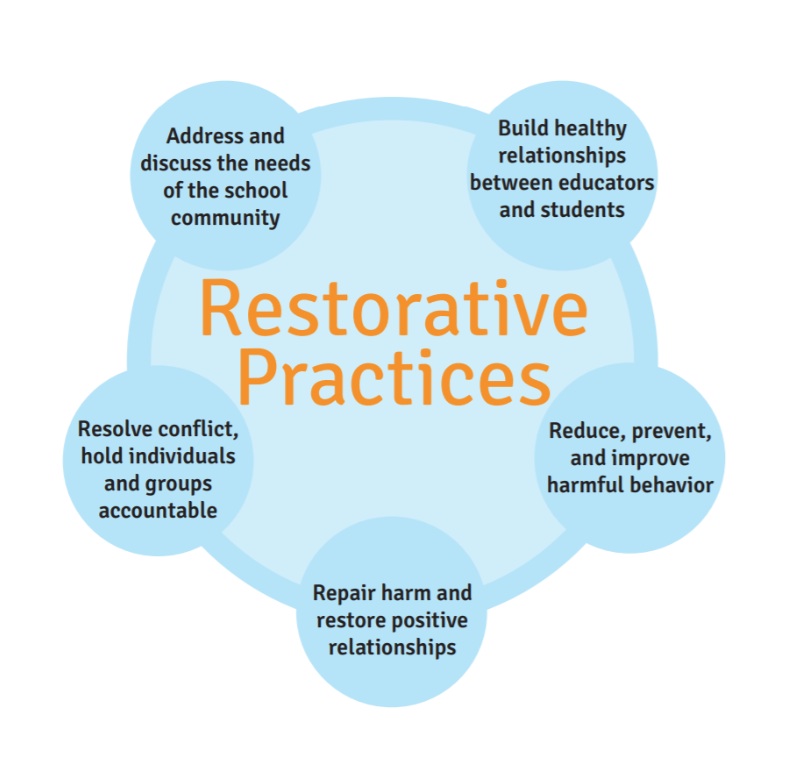 We are excited to share that Freshwater School is now utilizing Restorative Practices to strengthen relationships to improve school climate and culture. Restorative Practices are processes that proactively build healthy
We are excited to share that Freshwater School is now utilizing Restorative Practices to strengthen relationships to improve school climate and culture. Restorative Practices are processes that proactively build healthy
relationships and a sense of community to prevent and address conflict and wrongdoing.
Restorative practices allow individuals who may have committed harm to take full responsibility for their behavior by addressing the individual(s) affected by the behavior. Taking responsibility requires understanding how the
behavior affected others, acknowledging that the behavior was harmful to others, taking action to repair the harm, and making changes necessary to avoid such behavior in the future.
Restorative Practices can help our students repair harm that’s been done to a relationship. It is a zero shame philosophy. Instead of students taking a “time out” and being away from their community, they take a “time in” and practice communication skills, problem solving, and goal setting. When holding Restorative Circles, the following questions are asked:
To respond to challenging behavior:
- What happened? NOT “Why did you…?” (Shame based)
- Who has been harmed/affected by what you have done? In what way?
- What do you think you need to do to make things right?
To help those harmed by others actions:
- What did you think when you realized what had happened?
- What affect has this incident had on you/others?
- What do you think needs to happen to make things right?
Restorative practices work when they are implemented school wide and integrated into the fabric of the school community. When the whole school is infused with restorative strategies, it becomes easier to address issues faster and respond in a thoughtful way because the caring and supportive culture is already present. We even encourage our families to incorporate Restorative Practices at home to further support Freshwater’s core values.
Thanks for your support!
 Freshwater
Freshwater